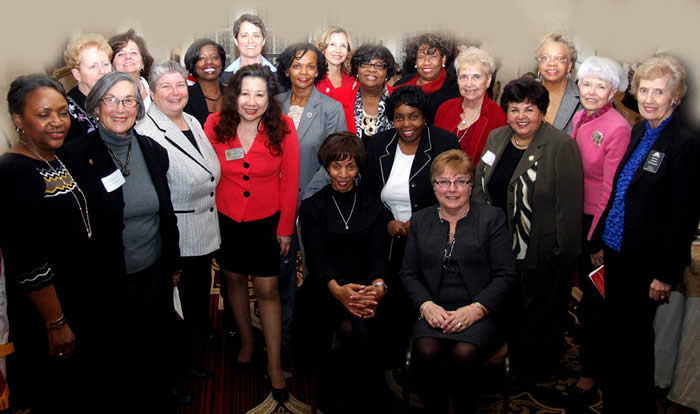By Len Lazarick
Len@MarylandReporter.com
Howard County Executive Ken Ulman, the state’s youngest county executive, becomes the key spokesman for local officials across Maryland after he is inaugurated as president of the Maryland Association of Counties tonight.
MACo is always a major player in Annapolis, but this is a particularly crucial year for the counties as they try to fend off further attempts to cut their state aid or dump more costs onto them.
In a December interview, the 36-year-old Ulman said the top issues for counties are “budget, budget, budget. It’s all about future pension shifts and budget. We have some other issues, but that is the real issue.”
“The state has pretty much dried up all the aid to the counties. Now they’re dipping into counties even deeper,” Ulman said.
Counties, he said, are concerned with restoring the highway user revenues the state used to share with them, and the possibility of shifting half the financial burden of teacher pensions to county governments.
Ulman pointed out that the charts prepared by legislative staff that show aid to the counties going up 3% this year. All of that increase went directly to the school systems, while other local aid was drastically cut, he said.
The state used to share about 30% of highway user revenues from the gas tax with the counties. In the last two years, the state has diverted almost all of that — $340 million — into the general fund to help balance the state budget.
Aid for police, libraries, public health departments and community colleges has all been reduced from the prior year appropriations – “real” cuts as opposed to reductions in future aid increases as occurred for school aid.
The cut in highway aid has slammed smaller rural counties, Ulman said. For many of them, that was the only source of funding for road maintenance.
Unexpected presidency
Ulman’s leadership of MACo was unexpected. He only became secretary of the organization last January, putting him on the leadership ladder to become president in three years, he said.
But one of the people ahead of him, Charles County Commissioner Wayne Cooper, a Democrat, resigned; another, Republican Anne Arundel County Council member Cathy Vitale, was term-limited and was just elected to the House of Delegates; and the guy who might have been president this year, Allegany County Commissioner Bob Hutcheson, lost his Republican primary. This left Ulman in the saddle.
MACo has a contingent of three staff members who lobby the General Assembly on behalf of local jurisdictions. But Ulman said he expects to be “camping out” in the state capital to advocate for county issues.
Opposed to pension shift
A special commission examining the sustainability of state pensions is recommending that half of the cost of teacher pensions be shared by the county school boards. The state now pays all the cost of teacher retirement, now approaching $1 billion per year.
This would save money from the state coffers, but puts the burden onto county revenues, and they’re all the same taxpayers, Ulman said.
He called this “a very shortsighted approach.” The commission did recommend some reductions in the actual pension benefits, but any savings would be directed into paying for the $18 billion in unfunded liabilities for the pension benefits the state has already promised.
“If it’s unsustainable. It’s unsustainable no matter who pays for it,” Ulman said.
The counties are “very concerned and very upset” about the change, he said, and he’s hearing from county officials across the state that there’s “a real desire to make a strong statement here.”
“The teacher pension shift goes too far,” Ulman said. “In more rural areas, they’ve had it with the state.”
O’Malley an ally
The counties feel that Gov. Martin O’Malley has been a friend, and things could have been a lot worse with a governor who hadn’t run a local government, as O’Malley did as Baltimore mayor.
“We believe very strongly that we’ve been well served by the governor,” Ulman said, noting that O’Malley does not want to do the pension shift.
But county officials, who’ve also seen their local revenues drop, also understand that the state’s budget problems are “incredibly daunting.”
Ulman is also a close political ally of O’Malley, endorsing him early in his first run for governor and appearing with him often in his visits to Howard County.
There’s long-standing tension between the local boards of education, which often spend more than half the county budget (58% in Howard County) and the local governments, which furnish the dough but have little say in how it’s spent.
On top of that, state law requires “maintenance of effort” by the county funders. This means they must increase the school budget if state aid and enrollment go up.
“It’s a tremendous frustration among county officials,” Ulman said, though he admits he’s “very blessed with my relationship with” Howard County schools superintendent Sidney Cousin.
“It is a structure set up for conflict,” Ulman said. “In many counties, the superintendents don’t talk to their county officials.”
Ulman has other allies in Annapolis, such as Howard County Sen. Ed Kasemeyer, the new chairman of the Budget and Taxation Committee, and another member of the budget committee, his predecessor in the county executive’s office (and former MACo president) Sen. Jim Robey.
Not on the side of Ulman and the other county officials are the sluggish economy and falling real estate values that will produce flat property tax revenues. Revenue projections for both the state and the counties have risen slightly, but are not expected to grow very much.
Much of this story originally appeared in Len Lazarick’s column published Tuesday in The Business Monthly from Columbia.







Recent Comments